Heading
English Language
In English language classes, students develop foundational skills in reading, writing, speaking, and listening. Activities include storytelling, phonics, and basic grammar exercises to build strong communication abilities. Emphasis is placed on vocabulary development and comprehension through interactive and engaging methods such as group discussions, role-playing, and creative writing projects.

Russian Language
Russian language classes introduce students to the basics of the language, focusing on vocabulary, simple sentence structures, and conversational skills. Emphasis is placed on listening and speaking to foster language acquisition. Students engage in activities like dialogues, songs, and cultural stories to enhance their understanding and appreciation of the Russian language and culture.

Kazakh Language
Kazakh language classes introduce students to basic vocabulary, pronunciation, and simple conversational phrases. Cultural aspects are also integrated to enhance understanding. Activities include traditional songs, stories, and interactive language games that make learning engaging and fun.
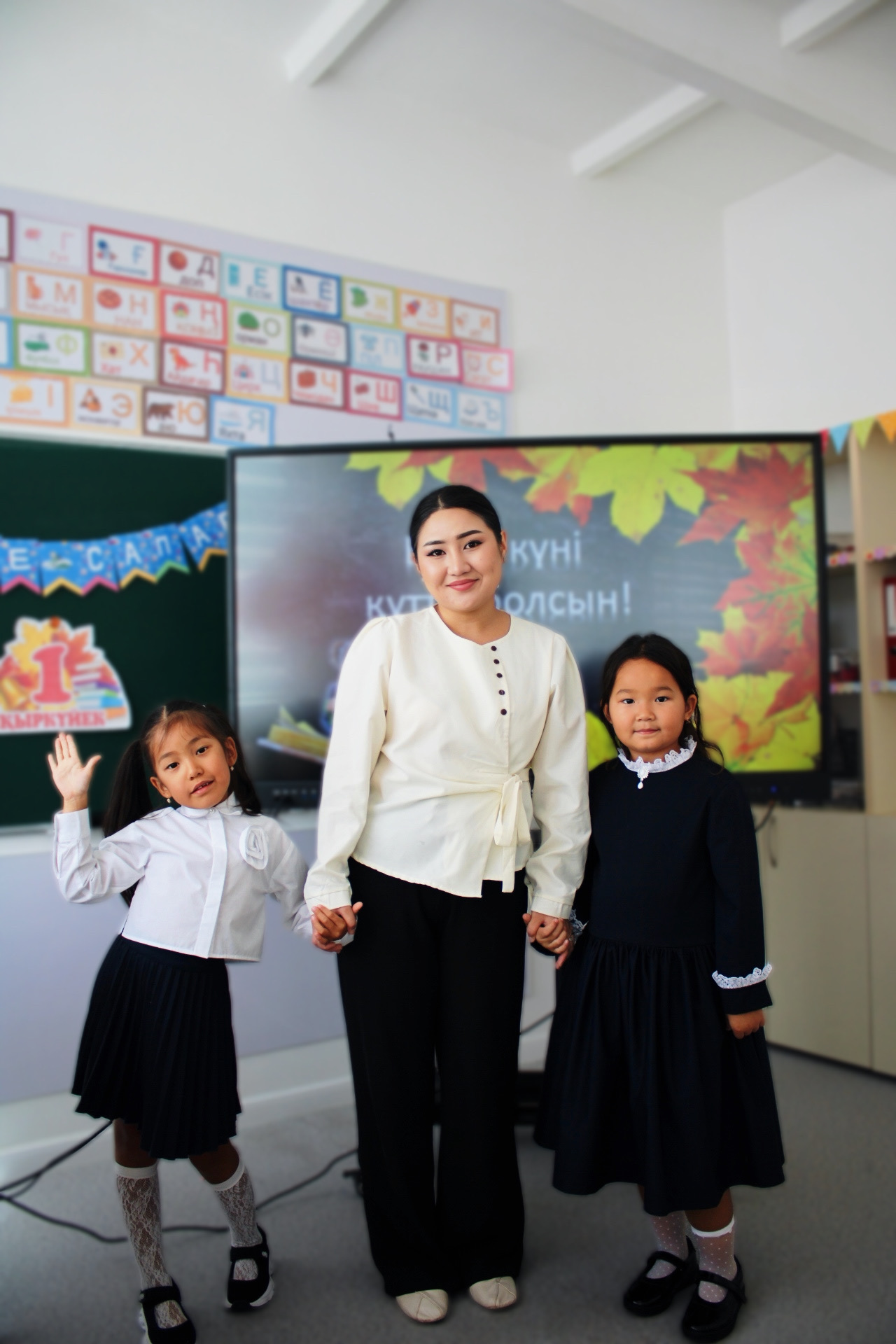
Judo
Judo classes teach students discipline, respect, and physical fitness through basic techniques and movements. The focus is on developing coordination, strength, and self-confidence. Students learn various throws, holds, and falls in a safe and supportive environment, promoting both physical and mental well-being.

Science
Science classes allow young learners to explore the natural world through hands-on experiments and observations. Topics include basic biology, physics, and earth sciences, fostering curiosity and critical thinking. Students engage in activities such as plant growth experiments, simple chemical reactions, and exploring the properties of different materials.
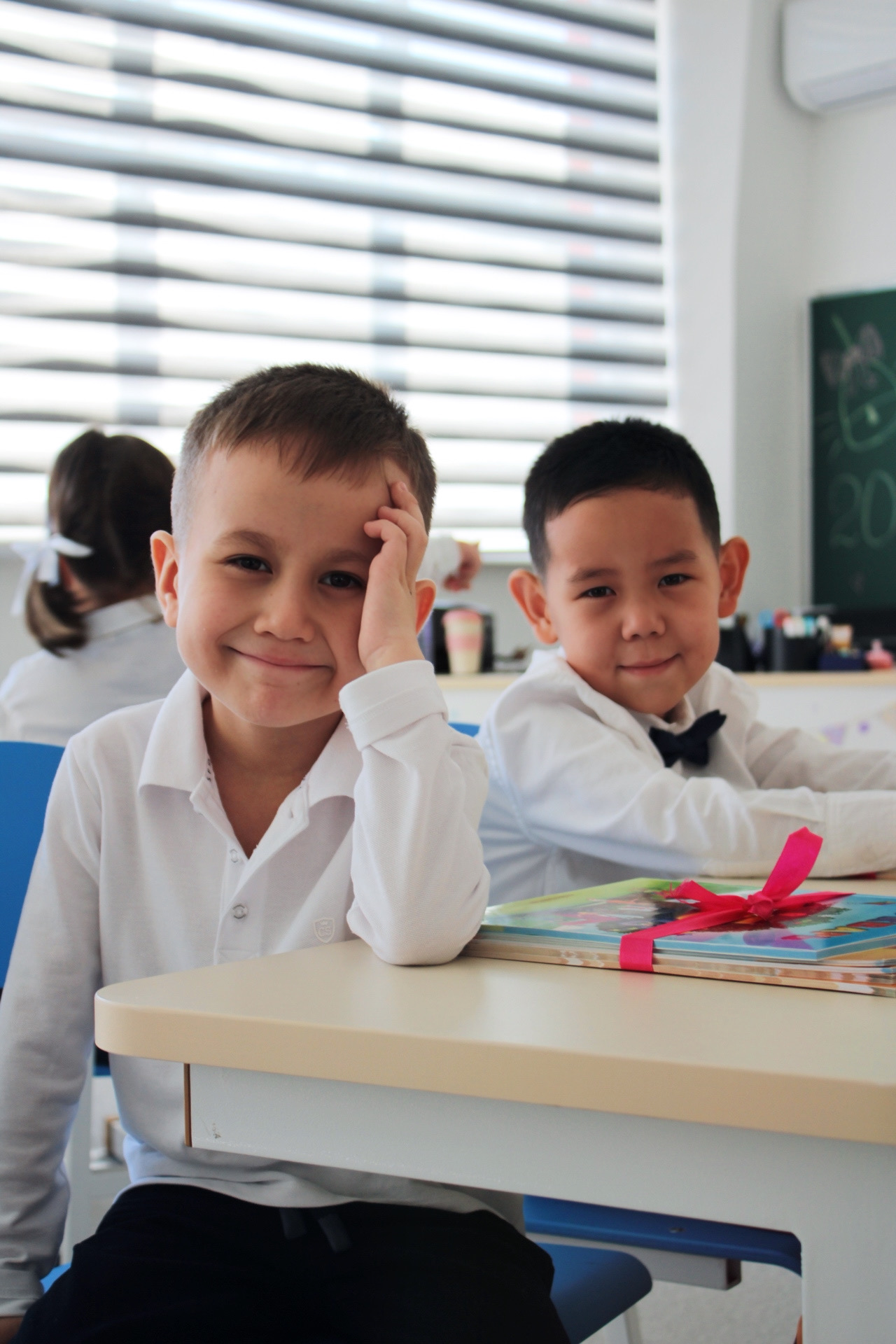
Art
Art classes encourage creativity and self-expression through various mediums such as drawing, painting, and crafting. Students learn about colors, shapes, and famous artists. Projects often include creating personal artworks, collaborative murals, and exploring different artistic techniques and styles.

Information Technology (ICT)
ICT lessons cover basic computer skills, including typing, using educational software, and understanding internet safety. Students learn to navigate digital tools effectively, create simple documents, and explore basic coding concepts through age-appropriate programs and activities.
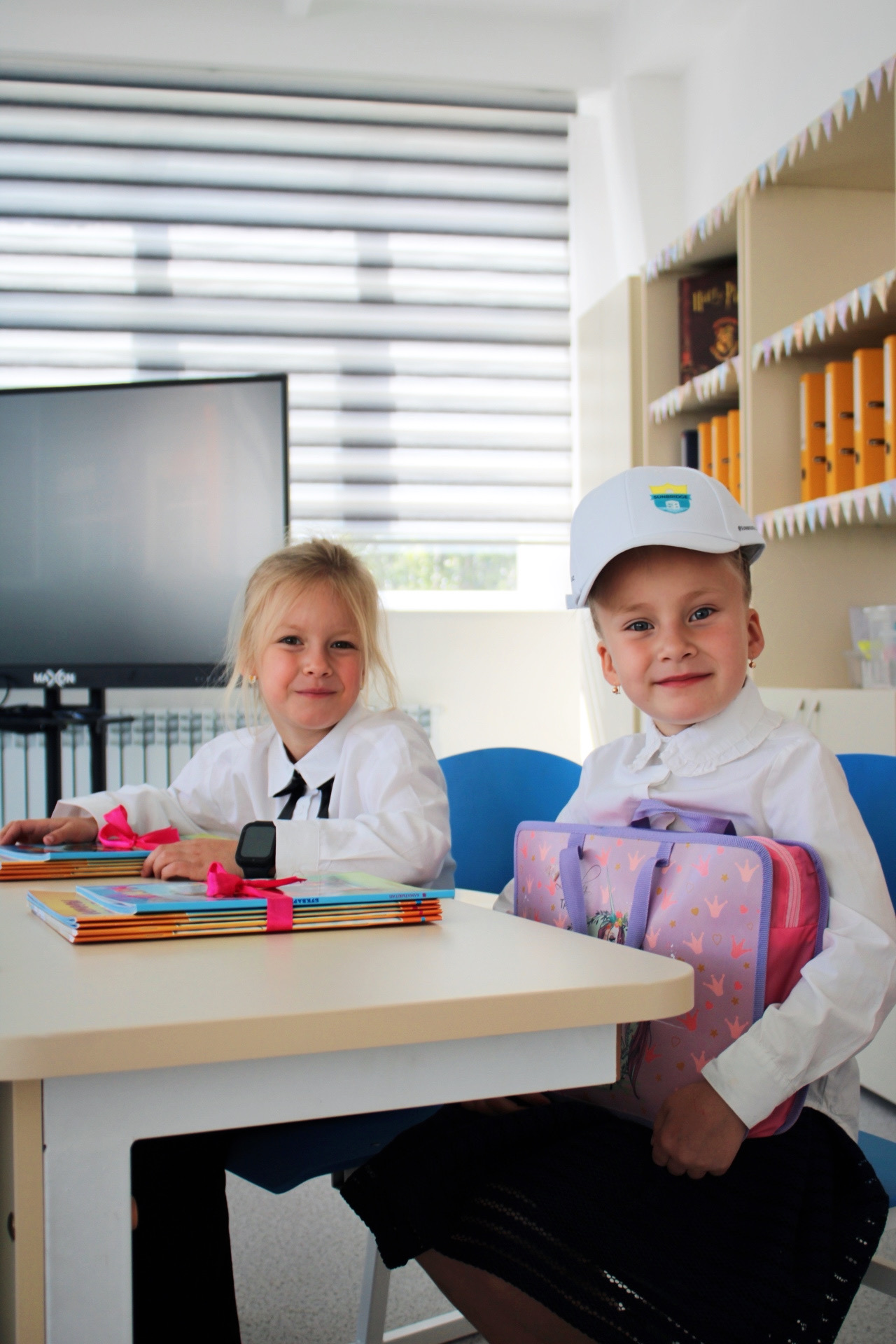
Literature
Literature classes introduce students to age-appropriate stories and poems, fostering a love for reading. Discussions and activities help develop comprehension and analytical skills. Students explore different genres, participate in read-aloud sessions, and engage in creative projects related to the texts they read.
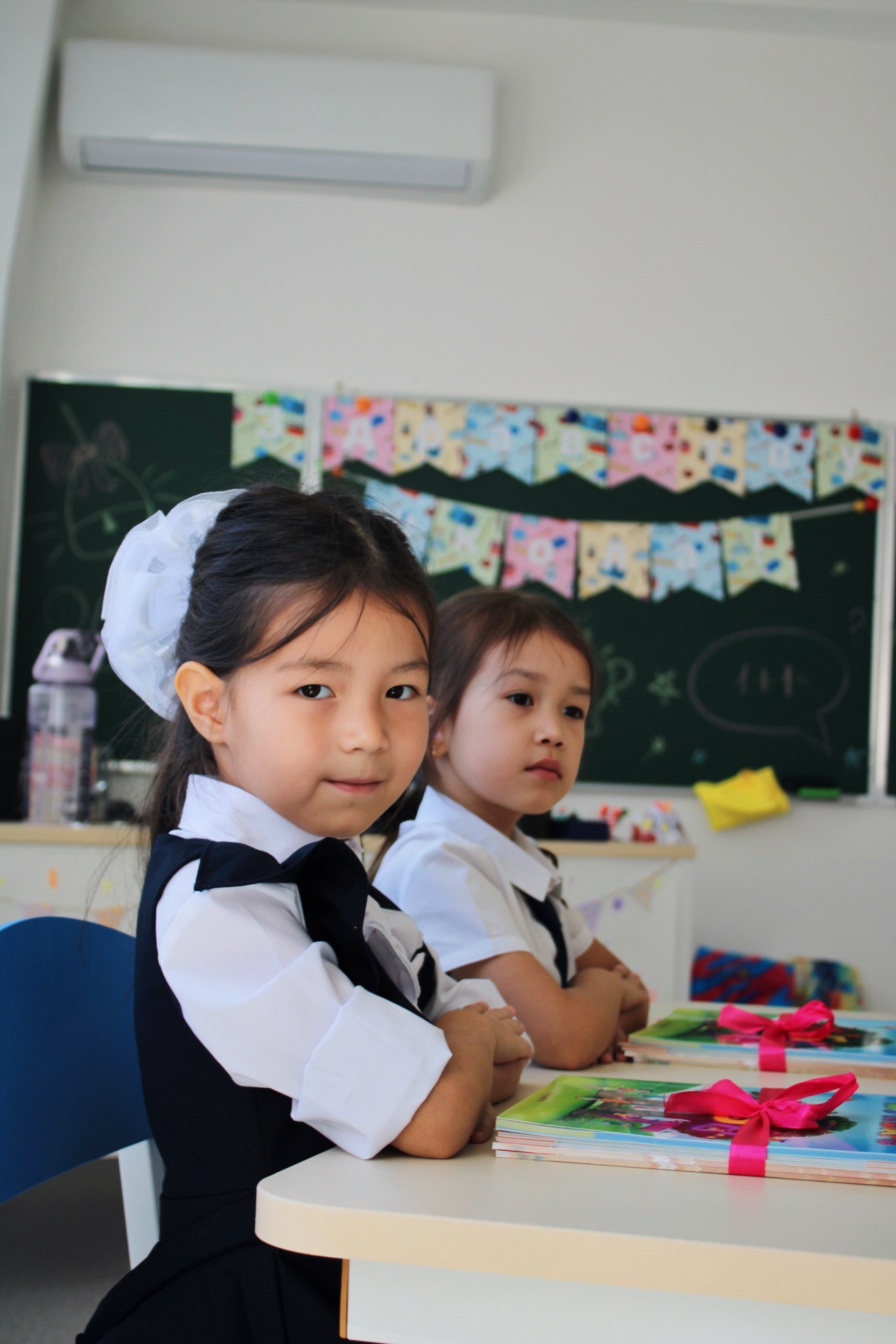
Logic
Logic lessons enhance critical thinking and problem-solving abilities through puzzles, games, and simple reasoning exercises. Students learn to approach challenges methodically and develop strategies for solving various types of problems, fostering a logical and analytical mindset.
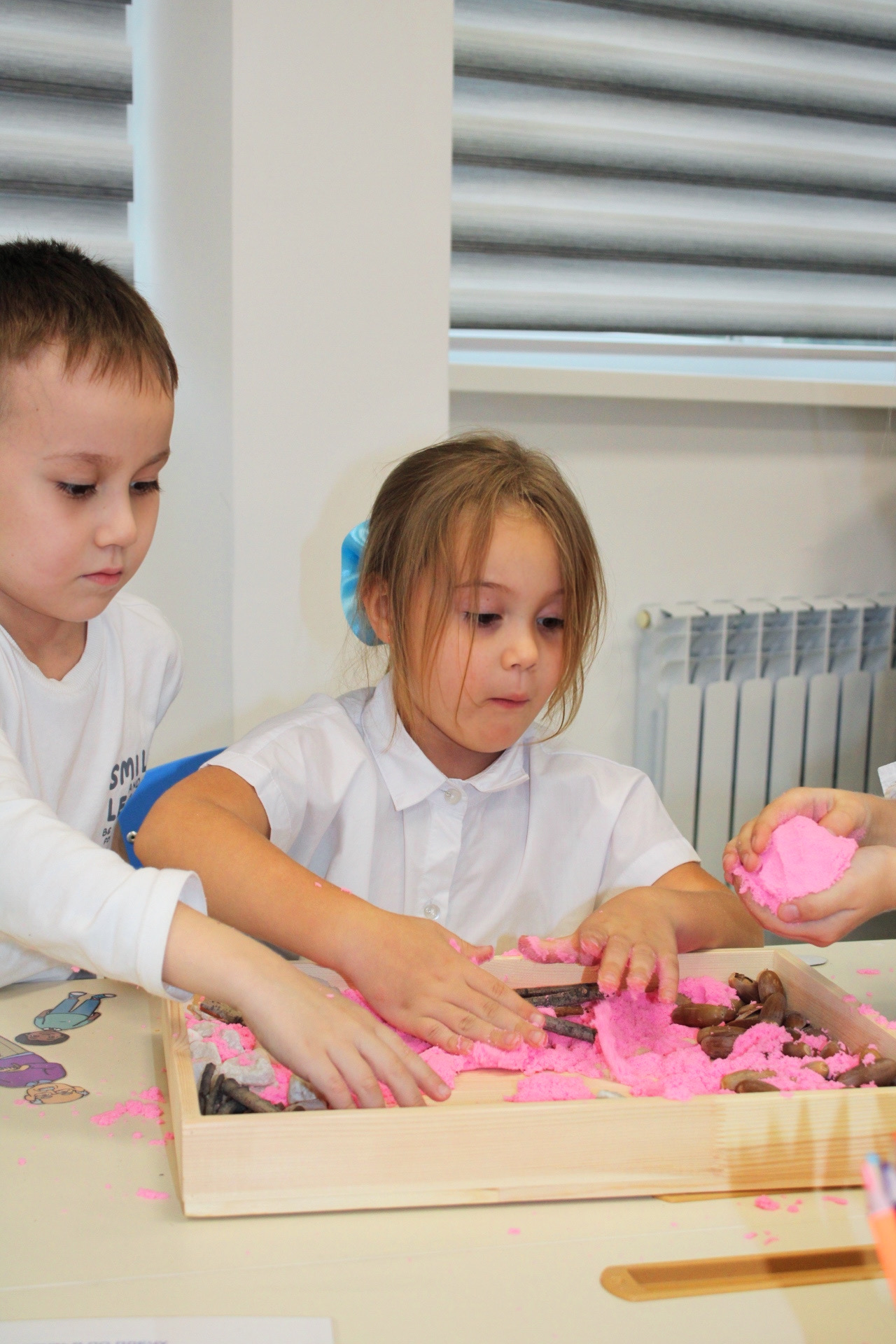
Mathematics
Math classes cover fundamental concepts such as addition, subtraction, multiplication, and division. Interactive activities and games make learning math fun and engaging. Students also explore basic geometry, measurement, and data interpretation through hands-on activities and real-world applications.
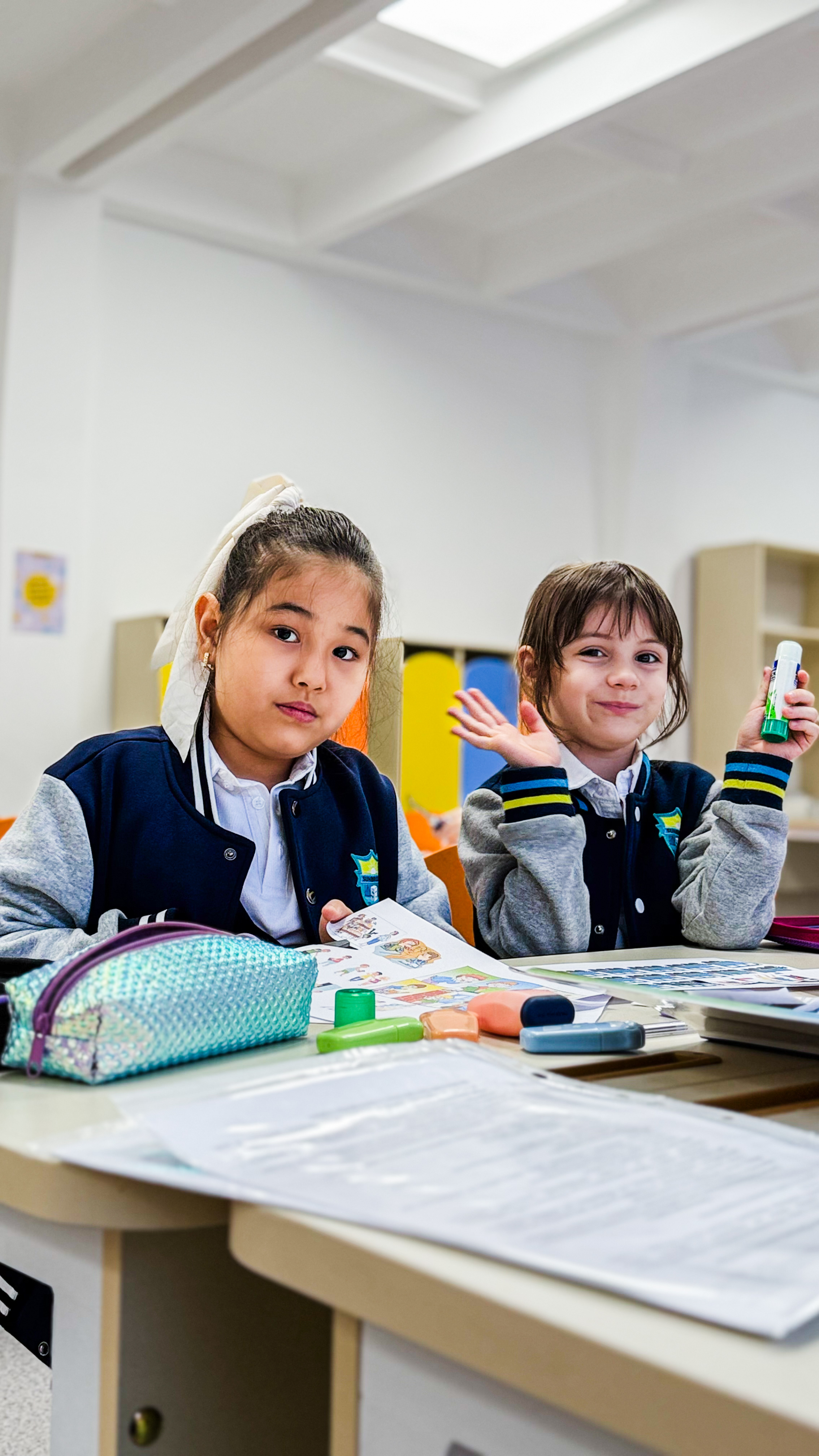
Music
Music education includes singing, rhythm exercises, and basic instrument playing. Students explore different musical genres and learn to appreciate various forms of music. Activities include learning simple songs, participating in rhythm games, and performing in class concerts.

Science (Knowledge of the World)
This subject broadens students’ understanding of the world around them, covering topics like geography, weather, and basic environmental science. Students engage in activities such as map reading, weather observations, and exploring different ecosystems.

Psychology
Psychology lessons focus on social and emotional learning, helping students understand their feelings and develop empathy. Activities include role-playing, group discussions, and exercises that promote self-awareness and emotional regulation.

Self-defense (SD)
Self-defense classes teach basic techniques for personal safety and awareness. Emphasis is on building confidence and understanding how to handle challenging situations. Students learn practical skills such as blocking, escaping holds, and using their voice assertively.

Self-preparation (SP/SS)
These sessions help students develop study habits and organizational skills. Activities include time management exercises, goal-setting practices, and strategies for effective learning and homework completion.

Technology
Technology classes introduce students to simple engineering concepts and hands-on projects. Students learn to build and create using basic tools and materials, exploring concepts such as simple machines, structures, and basic robotics.

Physical Education (PE)
PE classes promote physical fitness through various sports and activities. Students develop motor skills, teamwork, and a love for active living. Activities include running, jumping, throwing, and participating in team sports and games.
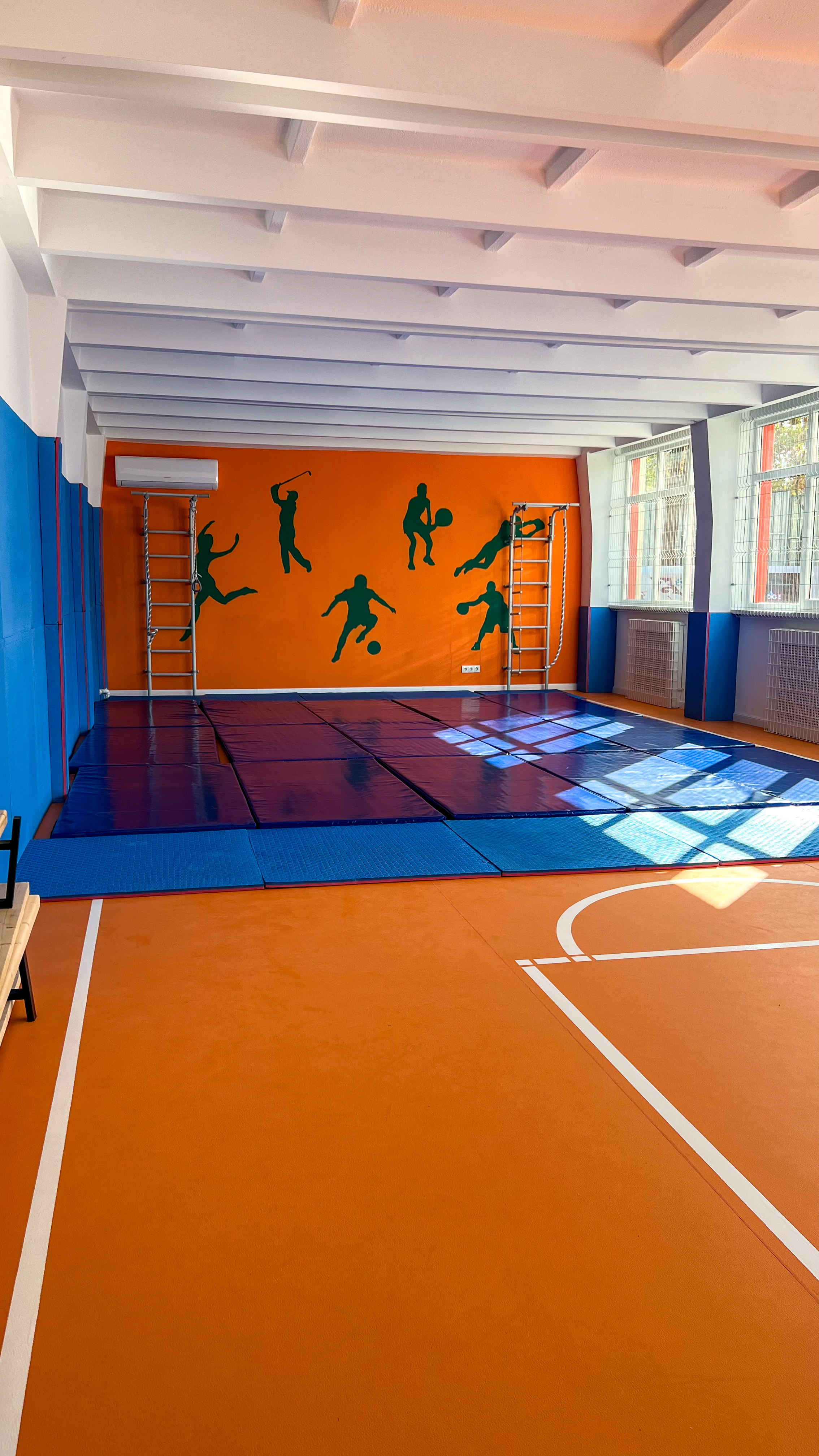
Football (Soccer)
Soccer lessons teach basic skills such as dribbling, passing, and teamwork. Students participate in drills and games to improve their abilities and enjoy the sport. Emphasis is placed on fair play, cooperation, and developing a positive attitude towards physical activity.

Choreography (Dance)
Dance classes encourage self-expression and physical coordination through various dance styles. Students learn routines and perform in group settings, exploring different genres such as ballet, hip-hop, and folk dance.

Chess
Chess lessons develop strategic thinking and concentration. Students learn the rules of the game and practice through friendly matches and puzzles. Chess helps enhance memory, problem-solving skills, and patience.

Ecology
Ecology classes teach students about the environment and the importance of conservation. Activities include nature walks, recycling projects, and discussions on sustainability. Students learn about ecosystems, biodiversity, and ways to protect the planet.













.png)




